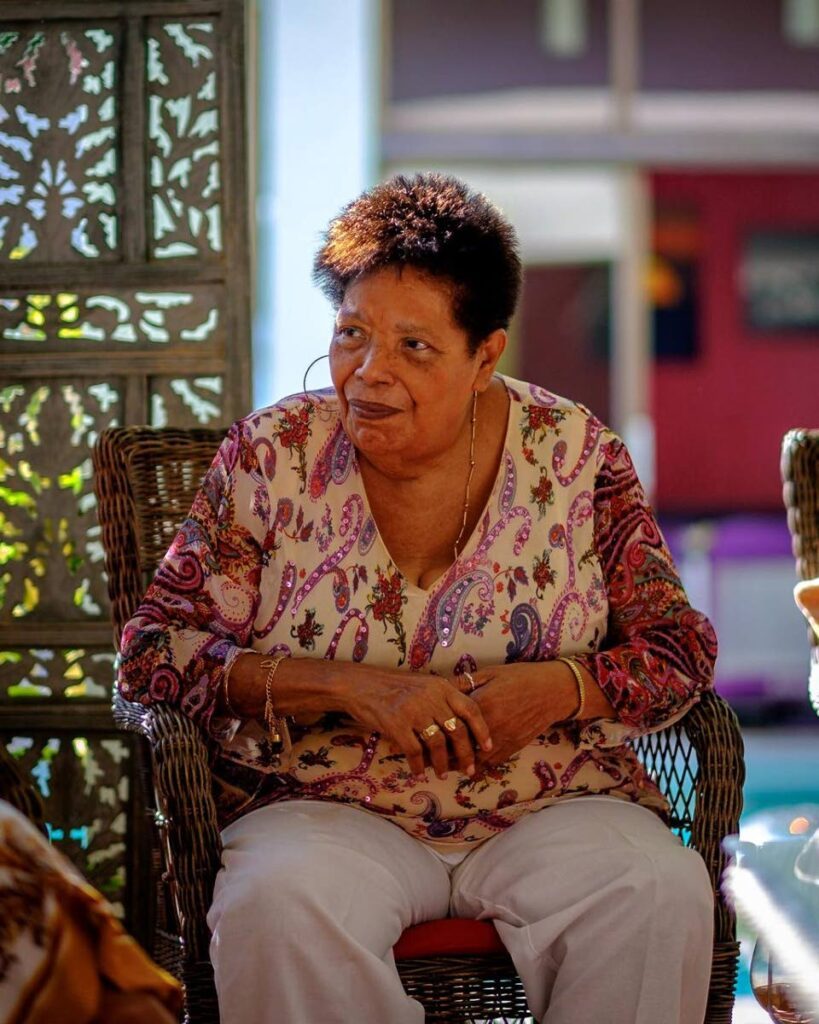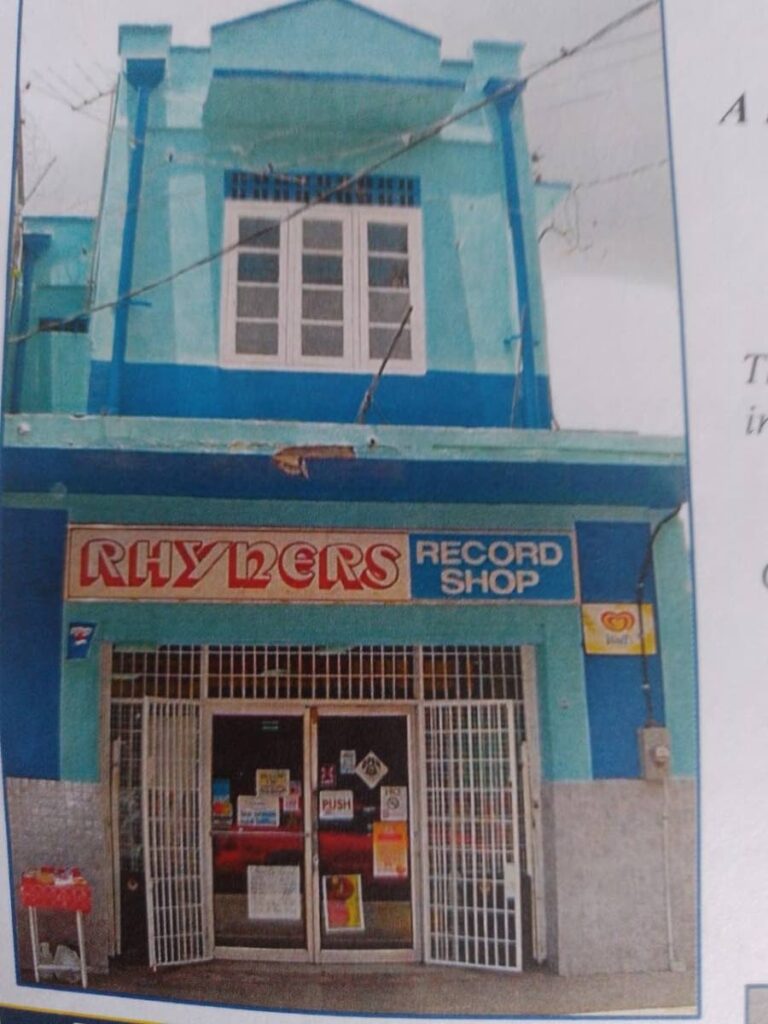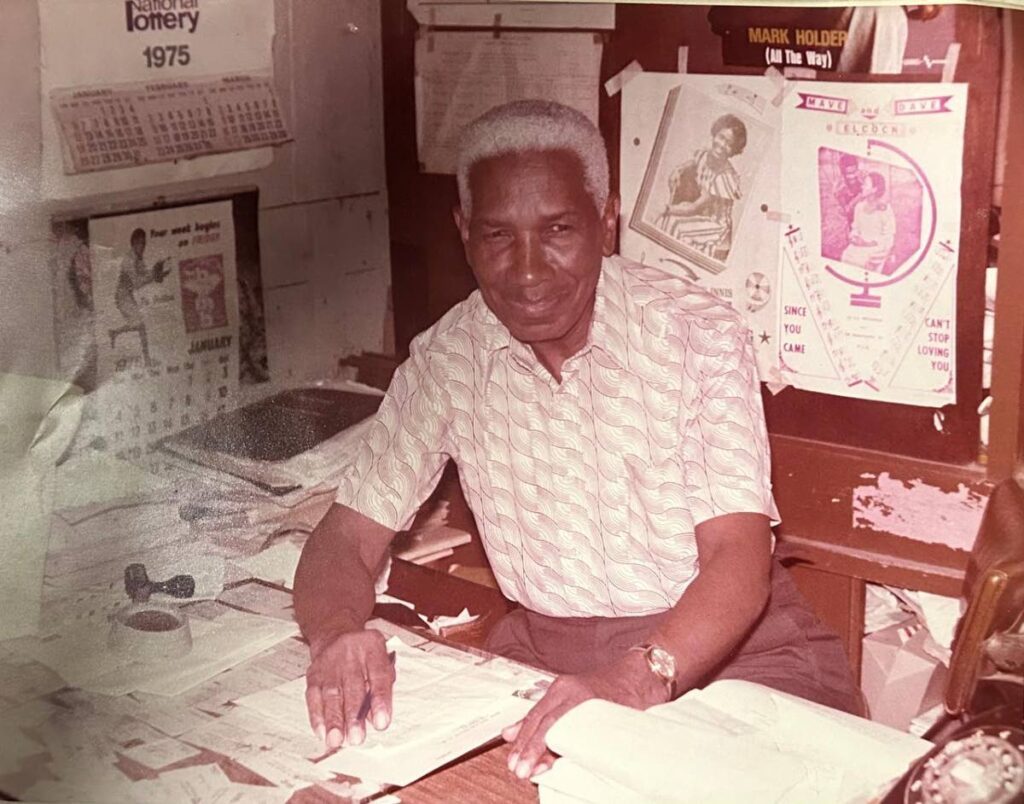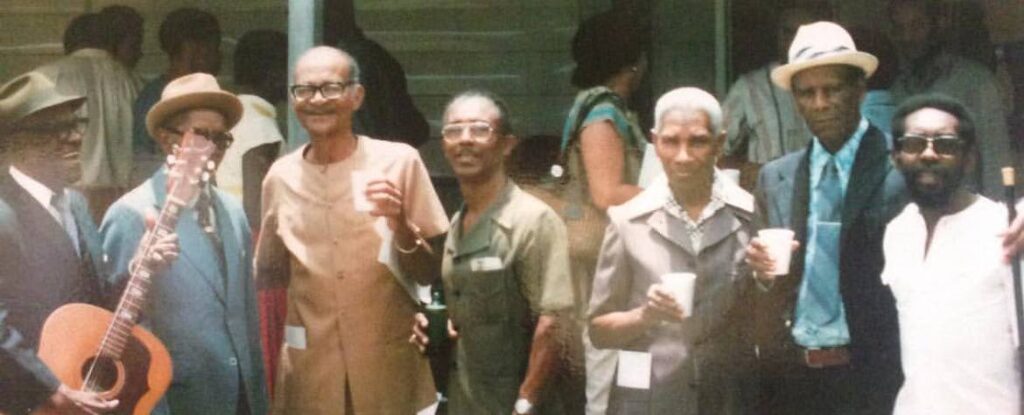Saying goodbye to Diana and Rhyner’s Record Shop

For some, Friday evenings were spent standing in line at Rhyner’s Record Shop, Prince Street, Port of Spain, waiting for the latest release. For others, there are memories of the record shop’s street parties featuring popular calypsonians from Machel to Baron.
A piece of Trinidad and Tobago’s musical history died with Diana Rhyner, 77, on May 4.
She became the face of the popular record shop when her father, Hilton, died in 1981.
She died at the Port of Spain General Hospital (PoSGH) from complications associated with diabetes, her sister Yvonne Rhyner said in a phone interview on May 16.
In the 20th century, record shops occupied prominent places in their communities, the US National Museum of African American History and Culture’s website said.
It added, “They attracted followings of audiophiles who trekked to shops to find new additions to their music collections. Young music listeners frequented shops, even if they didn't have money. They flocked to shops to experience the glamour and professionalism they saw modelled by shop owners, their staff, and the leading entertainers who visited frequently.”
That pattern was mirrored in TT.
Hilton Rhyner opened the store in 1938.
Yvonne Rhyner said, “My father was a lover of calypso and calypsonians and he assisted a lot of them.
"Of course, it was only after his passing that people came forward and said what he did for them.”
The family also sponsored calypso competitions.
“Every year, before Carnival, we had a show in front the shop and calypsonians would come and perform. It was free, and the calypsonians performed free.
“We had all of the top calypsonians, like Machel. People would just stay in the streets and watch the shows.”
After their father's death, Diana took over the day-to-day management of the shop.
Rhyner said Diana worked nowhere else but in the record shop.

“She continued his legacy with the music, and she still has a lot of records she collected and started selling.”
The family intends to continue selling those records now.
The shop closed its Prince Street location in 2006 and moved to Piarco International Airport but that branch too is now closed.
The store's closure, however, does not negate its contribution to the popularisation of calypso and soca.
A major part of that was because of Diana’s personality. She was a repository of information about calypso in TT, Yvonne said.
“As they said in her eulogy, you just had to say one word and she could sing a calypso about it. People used to think she was making it up, but she would say, ‘No, this is really a calypso.’
“Even a gentleman from Italy...wrote me and he said he remembered when he came here, every record he took out, she was able to sing it for him.”
But there are no books recording Diana Rhyner's life or that of her father, and this is something the family would like to have happen.
Diana was involved in the music community, but also in Diego Martin, where she lived, and the wider society.

-
Yvonne said Diana was very involved in her church, St John’s the Evangelist Catholic Church, where she was its hospitality person. She even formed a group there called Helter-Skelter and gave charitable performances.
She also volunteered at Persons Associated with Visual Impairment (PAVI) and the Living Water Community.
Almost up until her death, Diana dressed as a minstrel and greeted people on Carnival Friday this year for her church.
Producers like Carl “Beaver” Henderson remembered mad rushes to get his songs to record shops like Rhyner’s, particularly on Friday evenings.
“Rhyner’s was a name, us in the industry, knew from since Jesus was in Pampers."The two sisters carried on after the old man left us. There was a legacy in the days of record stores…”
It was not the only one then, there was O’Brian’s, Cleve’s, Crosby’s and Abraham’s but Rhyner’s was that industry’s cornerstone, Beaver said.
He also remembered Rhyner’s hosting a jam outside the shop the week before Carnival and this helped market many artistes.
“They weren’t just a record store. They helped market the artiste.
"They basically sold our culture. Any foreigner came to TT, Rhyner’s was one of the stops people had to make to find out about our music and buy it to take back.”

He described the family as a beautiful one and a best friend to the local music industry.
“They were kind of people who would call you and ask you if you had anything new to release."They would always follow up on producers and artistes. They weren’t just hustlers in the business. They really cared about the industry and people in it.”
Adrian “Bass” Hackshaw spent many Saturday mornings in the shop with his mother and aunt.
“Music was always a part of the home, so it was a must that we pass in the record store to buy a record or two,” he said in a phone interview.
The face he remembered from those visits was Diana’s.
She was often impressed with him as a young boy coming into the shop and knowing exactly what song he wanted.
He sometimes helped her sell records too, he said.
“She was a very integral part of my music career. Besides my mom and aunt taking me in there, she always encouraged me with the music and stuff,” Bass said.
“She was a lover of music, especially calypso and, like my father, one of her favourites was Kitchener,” her sister said.
Yvonne would like to see her family honoured or documented in some way for the work they did in popularising and spreading calypso domestically, regionally and internationally.
Diana had no children and Yvonne hoped her two daughters (Diana’s nieces) would continue Rhyner’s musical legacy, but that has not happened.

Comments
"Saying goodbye to Diana and Rhyner’s Record Shop"